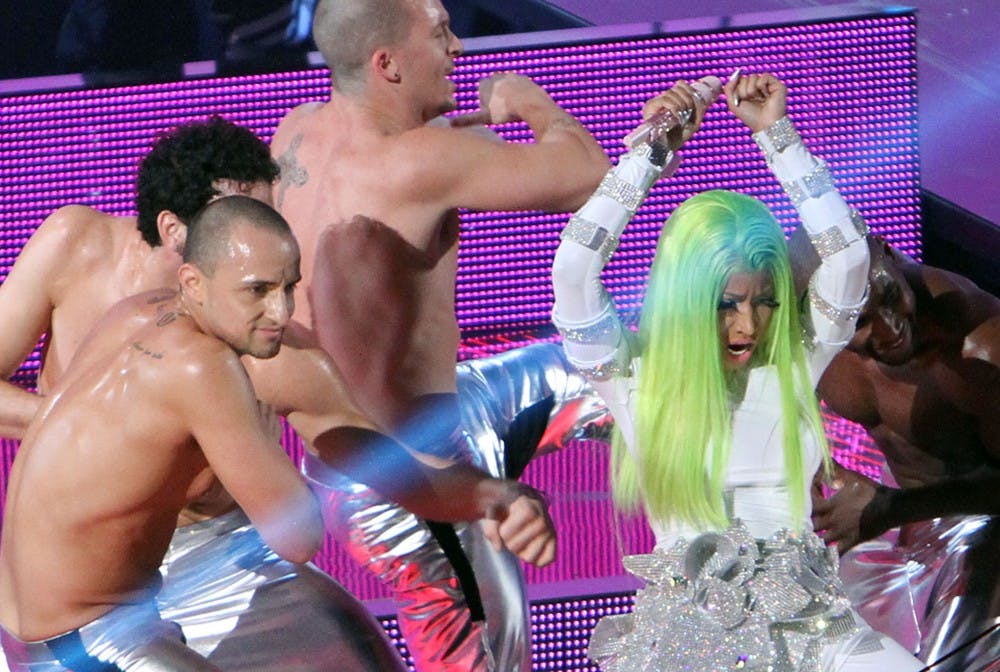As a music enthusiast, I have grown to appreciate a wide variety of genres. My music library dates back as far as 1969 with James Brown’s “The Payback.”
When I was growing up, I would listen to the music my parents and grandparents enjoyed when they were in college. One of the biggest things that differentiates the music our parents and grandparents would listen to from the music that we listen to today, is the way artists reference women.
In music today, women are belittled to a mere subject of sex. There are few songs that you hear on the radio that uplift and speak highly of the female gender.
In the 90s, music undoubtedly had its sexual content, but it was subtle and not nearly as vulgar and overt as it is in today’s music. In 2016, you are lucky if you manage to find a song on the radio without at least one sexual reference. While sex in general is more "acceptable" to discuss in public today than it was before, it is often not discussed as an action occurring between two people. More often than not, it is referenced to as something a man is doing to a woman, or what he wants a woman to do to him.
According to the International Business Times, data artist Nikolay Lamm conducted a study on this very issue: he analyzed the lyrics of every song that has reached the Billboard Top 100 list since 1960. In his studies, he found that there have been far more sexual references in music between 1990 and today than there were from 1960-1989.
There is nothing wrong with the mention of sex in music, as music is a free form of expression. However, the constant exposure to the undisguised sexism in the music that we listen to has desensitized us to sexism in general.
It has become "normal" and "cool" to sing or rap about women in an objectifying and degrading manner. We are now accustomed to these negative ideas and, as a result, we subconsciously embrace them.
"I would say that sex in music has evolved drastically over time," Alexus Dibrell, ASU music student explained. "We went from sex not being talked about, to sex being poked around about, to artists just flat out saying it. We're desensitized to it because we've heard it so much. It's all around us. Now, that's all we talk about."
Sexism in music is not just in the lyrics that we hear, but also in the images that we see. Music videos and performances frequently consist of half-naked women dancing in an alluring manner, regardless of lyrical content.
The display of women in this way can have a negative effect on body image and dating expectations for both men and women. Since it is common to see women in music videos with large butts and revealing clothes, that has become a body expectation for some.
There are also young women who feel as if they need to have the body shape and appearance of the singers and dancers that they see on television in order to feel attractive. Expectations like these can have a negative effect on both the self-esteem of women and the interactions, sexual or otherwise, between men and women.
An article in ‘Stylist’ magazine details sexism in music as a competition. The music industry has become a race to see who can say the raunchiest and most offensive lyric, and success is measured by how much feedback it receives, whether that feedback be negative or positive.
We often hear the cliché "sex sells," but we fail to realize that we are actually the consumers of sex. We may not be buying sex in the literal sense, but by us dancing to and singing along with the abrasive and demeaning lyrics we hear, we are accepting these negative images.
I often find myself questioning the lyrics that I sing along to. I pause and ask myself if the song embodies an ideal or moral that I accept or believe to be true, and in most cases, the answer is "no." But for some reason I listen anyways, because “it’s just a song.”
The “it’s just a song” defense justifies the discrepancy between what we hear and what we know to be right or wrong. The reality is, the degrading lyrics are everywhere, and it would take entirely too long to stop them from being produced. However, that does not necessarily mean we should integrate these demeaning values to our daily lives.
Music is a form of expression, and artists have every right to produce art in whatever manner they please. At the same time, it is our personal obligation to be aware of the music that we listen to and its effect on our moral compasses.
Reach the columnist at bmmoore8@asu.edu or follow @MooreBrianna97 on Twitter.
Like The State Press on Facebook and follow @statepress on Twitter.
Editor’s note: The opinions presented in this column are the author’s and do not imply any endorsement from The State Press or its editors.
Want to join the conversation? Send an email to opiniondesk.statepress@gmail.com. Keep letters under 300 words and be sure to include your university affiliation. Anonymity will not be granted.





